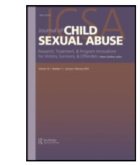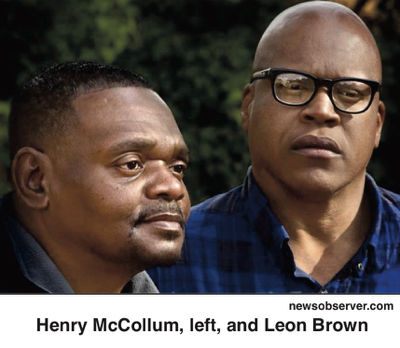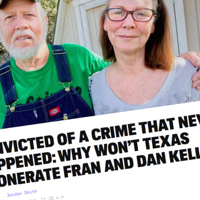Rascals case in brief
In the beginning, in 1989, more than 90 children at the Little Rascals Day Care Center in Edenton, North Carolina, accused a total of 20 adults with 429 instances of sexual abuse over a three-year period. It may have all begun with one parent’s complaint about punishment given her child.
Among the alleged perpetrators: the sheriff and mayor. But prosecutors would charge only Robin Byrum, Darlene Harris, Elizabeth “Betsy” Kelly, Robert “Bob” Kelly, Willard Scott Privott, Shelley Stone and Dawn Wilson – the Edenton 7.
Along with sodomy and beatings, allegations included a baby killed with a handgun, a child being hung upside down from a tree and being set on fire and countless other fantastic incidents involving spaceships, hot air balloons, pirate ships and trained sharks.
By the time prosecutors dropped the last charges in 1997, Little Rascals had become North Carolina’s longest and most costly criminal trial. Prosecutors kept defendants jailed in hopes at least one would turn against their supposed co-conspirators. Remarkably, none did. Another shameful record: Five defendants had to wait longer to face their accusers in court than anyone else in North Carolina history.
Between 1991 and 1997, Ofra Bikel produced three extraordinary episodes on the Little Rascals case for the PBS series “Frontline.” Although “Innocence Lost” did not deter prosecutors, it exposed their tactics and fostered nationwide skepticism and dismay.
With each passing year, the absurdity of the Little Rascals charges has become more obvious. But no admission of error has ever come from prosecutors, police, interviewers or parents. This site is devoted to the issues raised by this case.
On Facebook
Click for earlier Facebook posts archived on this site
Click to go to
Today’s random selection from the Little Rascals Day Care archives….
Click for earlier Facebook posts archived on this site
Click to go to
Today’s random selection from the Little Rascals Day Care archives….
An antipodal view: What would Bronte have thought?
 Feb. 10, 2012
Feb. 10, 2012
“(The scene of children screaming invective at a prison-bound Bob Kelly) was… the graphic heart of the documentary….
“The car pulled away, and they began to giggle self-consciously. A second or two of awkward silence heightened the artificiality of the moment, the sense of a construct that the girls fully understood. Then an older woman (presumably a mother) moved into the silence, and began to clap and cheer. A few others joined in in desultory fashion. ‘Let’s go get something (to) eat,’ said the mom….
“By chance, I had just finished reading ‘The Professor,’ a minor novel of Charlotte Bronte’s. Like most Bronte novels it was laced with leisurely reflections, and this one struck me powerfully enough to note down: ‘Human beings – human children especially – seldom deny themselves the pleasure of exercising a power which they are conscious of possessing, even though that power consists only in a capacity to make others wretched.’
“As those children shrieked at Bob Kelly through the glass of the police car window, I wondered if there wasn’t more than a whiff of that pleasure in power in the air.
“And then I remembered this town is called Eden, and we’ve known for a long while that the darnedest things happened in Eden.”
in the Canberra (Australia) Times, Oct. 18, 1998
Faller, Everson resist trend toward skepticism
 Sept. 24, 2012
Sept. 24, 2012
The February 2012 special issue of the Journal of Child Sexual Abuse is devoted entirely to “Contested Issues in the Evaluation of Child Sexual Abuse Allegations.”
Ritual-abuse holdouts Kathleen Coulborn Faller and Mark D. Everson use the issue to vigorously push back against calls for greater diagnostic skepticism.
The object of their displeasure is “The Evaluation of Child Sexual Abuse Allegations: A Comprehensive Guide to Assessment and Testimony” (2009), edited by the late Kathryn Kuehnle and Mary Connell. Contributors to the Kuehnle-Connell volume advocate more reliance on forensic science and less on “unverified methods or conjecture” of the kind that enabled prosecution of the Edenton Seven. By contrast, Everson and Faller can be counted on to stretch the bounds of prosecution-worthy evidence, from finding “clinical usefulness” in anatomical dolls to granting universal credibility to child-witnesses.
From Everson’s response in the journal:
“Many critics of current forensic practice (emphasize) specificity over sensitivity…. Specificity (minimizing inclusion of false cases) and sensitivity (maximizing inclusion of true cases) are counterbalancing indices of decision accuracy. Favoring specificity over sensitivity means that overdiagnosing (child sexual abuse) is considered a more serious concern than failing to substantiate true cases of abuse….”
Yes, I’ll admit it: I consider the perils of overdiagnosis – putting innocent people in prison – much worse than those of underdiagnosis – letting a possible abuser go free, at least temporarily. However much Everson and Faller might wish otherwise, our system of justice does stipulate “reasonable doubt.”
McCrory tires of Sherlock Holmes impersonation
 June 4, 2015
June 4, 2015
“Gov. Pat McCrory on Thursday pardoned two half-brothers who were exonerated of murder after spending three decades in prison.
“The governor took nine months to make the decision….”
– From “Governor pardons McCollum, Brown” by Craig Jarvis in the Raleigh News & Observer (June 4)
Henry McCollum and Leon Brown, both intellectually disabled and now destitute, had been declared innocent last year by a Superior Court judge. But that exoneration, based on DNA evidence from the crime scene, wasn’t good enough for the governor, and even now the statement accompanying his pardon of innocence is lukewarm at best:
“It is difficult for anyone to know for certain what happened the night of Sabrina Buie’s murder…. I know there are differing opinions about this case and who is responsible….”
McCollum and Brown now qualify for $50,000 for each year they were imprisoned, up to a maximum of $750,000 – unless McCrory decides that process demands further investigation as well.
Read more here.
‘There are no profiles in courage out there’

theintercept.com
The Intercept article
April 25, 2016
“Prosecutors wield extraordinary, unparalleled, and unchecked power. ‘They alone decide who to prosecute for criminal offenses, what charges to bring against them, and what punishments to seek,’ as the National Registry (of Wrongful Convictions) says. ‘In practice, that power extends to convicted defendants as well. If a sitting prosecutor asks the appropriate court to vacate the judgment and dismiss the charges against a defendant … it will happen.’
“But this requires political will. And too often, the will is not there. As (Keith Hampton, attorney for Fran and Dan Keller) notes, convincing a prosecutor that an injustice has happened can be a tough pull: ‘Unless you have DNA – unless you get the DA completely cornered – there are no profiles in courage out there,’ he says.
“Still, the number of exonerations in cases where no crime was actually committed are on the rise – so at least in some jurisdictions, individuals aren’t forever left in the kind of limbo in which the Kellers find themselves. The National Registry includes 540 exonerations in no-crime cases, including 51 exonerations in child sex abuse ‘hysteria’ cases (including Bob Kelly and Dawn Wilson)….”
– From “Convicted of a Crime That Never Happened: Why Won’t Texas Exonerate Fran and Dan Keller?” by Jordan Smith at the Intercept (April 8)
![]()











0 CommentsComment on Facebook